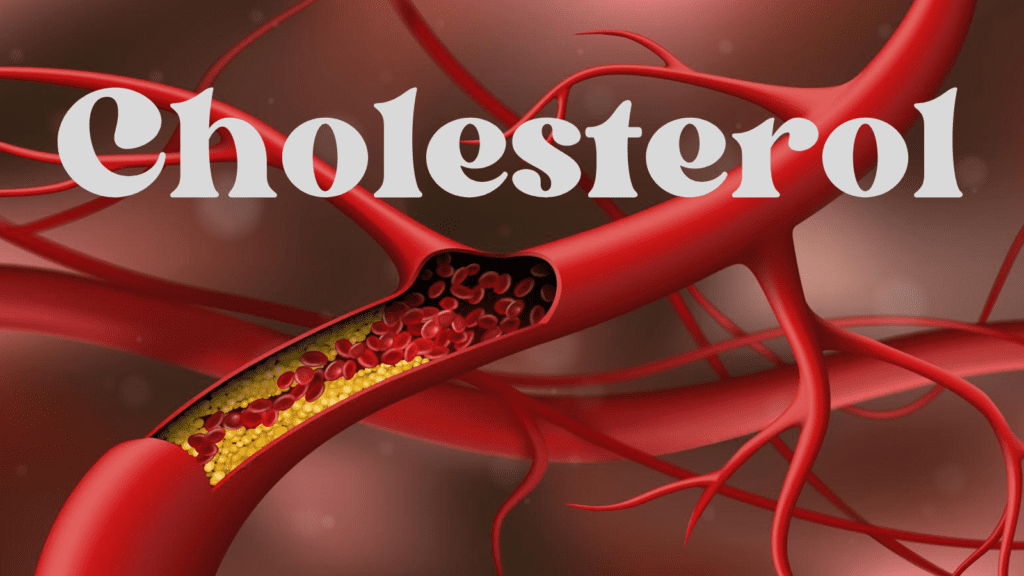Cholesterol: What You Need to Know for a Healthy Heart

Cholesterol – it’s a word that often sends shivers down the spines of health-conscious individuals. We’re constantly bombarded with warnings about the dangers of high cholesterol, but do we really understand what it is and how it affects our bodies? In this blog post, we’ll delve into the world of cholesterol, exploring its role in our health and dispelling some common myths.
Cholesterol: The Basics
What is Cholesterol?
Cholesterol is a waxy, fat-like substance that is found in the cells of our body. It is a type of lipid, which means it doesn’t dissolve in water and must be transported in the bloodstream by carrier molecules called lipoproteins.
Why Do We Need Cholesterol?
Cholesterol is not all bad. In fact, it is essential for the following functions:
- Cell Membranes: Cholesterol is a fundamental component of cell membranes, providing stability and fluidity.
- Hormone Production: It is a precursor to the synthesis of hormones, including sex hormones (estrogen and testosterone) and stress hormones (cortisol).
- Vitamin D Synthesis: Cholesterol in the skin is a starting point for the production of vitamin D when exposed to sunlight.
- Bile Acid Production: Cholesterol is needed to make bile acids, which aid in the digestion and absorption of fats.
Types of Cholesterol
Cholesterol exists in different forms in the bloodstream, and it’s essential to understand the various types of cholesterol because they play distinct roles in our health. The two primary types of cholesterol are low-density lipoprotein (LDL) and high-density lipoprotein (HDL):
- Low-Density Lipoprotein (LDL):
- Commonly Referred to as “Bad Cholesterol”: LDL cholesterol is often called “bad cholesterol” because high levels of it in the bloodstream are associated with an increased risk of heart disease.
- Transporter of Cholesterol: LDL particles transport cholesterol from the liver, where it is produced, to various cells and tissues throughout the body.
- Atherogenic: When LDL cholesterol levels are too high or when the LDL particles are oxidized, they can penetrate the walls of arteries. This can lead to the accumulation of plaque, a fatty deposit, on the arterial walls, resulting in atherosclerosis. Atherosclerosis narrows the arteries and can impede blood flow, potentially leading to heart attacks or strokes.
- High-Density Lipoprotein (HDL):
- Often Referred to as “Good Cholesterol”: HDL cholesterol is known as “good cholesterol” because higher levels of HDL in the bloodstream are associated with a reduced risk of heart disease.
- Cholesterol Removal: HDL particles have a vital role in removing excess cholesterol from the blood vessels and transporting it back to the liver for excretion. This process helps to prevent the buildup of plaque in the arteries.
- Anti-Atherogenic: HDL cholesterol is considered anti-atherogenic because it helps protect against atherosclerosis by promoting the reverse transport of cholesterol away from the blood vessels.
It’s important to note that total cholesterol levels in the blood represent the combined levels of both LDL and HDL cholesterol, as well as other components, such as triglycerides. Therefore, when you get a cholesterol test, it typically measures:
- Total Cholesterol: This is the sum of LDL cholesterol, HDL cholesterol, and 20% of your triglyceride levels.
- Triglycerides: These are a type of fat found in your blood. High triglyceride levels can also be a risk factor for heart disease.
- LDL Cholesterol: This represents the amount of LDL cholesterol in your bloodstream. Lower levels of LDL cholesterol are generally better for heart health.
- HDL Cholesterol: This measures the amount of HDL cholesterol in your blood. Higher levels of HDL cholesterol are considered beneficial for heart health.
To assess your cardiovascular risk accurately, healthcare providers often look at the ratio of total cholesterol to HDL cholesterol. Lower ratios are associated with a reduced risk of heart disease.
Cholesterol Myths
There are several common myths and misconceptions surrounding cholesterol, which can lead to confusion and unnecessary worry. Let’s address some of these cholesterol myths and provide clarity on the subject:
Myth 1: All Cholesterol is Bad
This is perhaps one of the most significant cholesterol myths. Cholesterol is not inherently bad; in fact, it’s vital for many essential bodily functions. The problem arises when there is an imbalance in the types of cholesterol in your bloodstream. High levels of LDL cholesterol (often referred to as “bad cholesterol”) can lead to a higher risk of heart disease. However, HDL cholesterol (the “good cholesterol”) is beneficial and helps remove excess cholesterol from your blood vessels.
Myth 2: All Fats are Harmful
While it’s true that certain types of fats can raise LDL cholesterol levels and increase the risk of heart disease, not all fats are harmful. Healthy fats, such as monounsaturated and polyunsaturated fats found in foods like avocados, nuts, and olive oil, can actually improve your cholesterol profile. These fats are essential for your overall health.
Myth 3: Diet is the Sole Culprit
Diet plays a significant role in cholesterol levels, but it’s not the only factor. Genetics, lifestyle choices, and other health conditions also influence your cholesterol. Some people may have a genetic predisposition to high cholesterol levels, which can be challenging to control with diet alone. Managing cholesterol often requires a multifaceted approach that includes diet, exercise, and, in some cases, medication.
Myth 4: Cholesterol Medications Are a Cure-All
While cholesterol-lowering medications, such as statins, can be effective in managing high cholesterol, they are not a magic solution for heart health. Medications should be used in conjunction with lifestyle changes, such as a heart-healthy diet and regular exercise. Additionally, they may not be necessary for everyone with high cholesterol, and their use should be carefully discussed with a healthcare provider.
Myth 5: Cholesterol Levels Don’t Matter as You Age
It’s a common misconception that as you age, your cholesterol levels don’t matter as much. However, the impact of high cholesterol on your heart health remains significant throughout your life. Managing cholesterol is essential at all ages to reduce the risk of heart disease, even in older adults.
Myth 6: Lowering Cholesterol Means Avoiding Dietary Cholesterol
While dietary cholesterol can influence your blood cholesterol levels to some extent, it’s not the primary driver. For most people, the cholesterol in food (like eggs and shrimp) has a more modest impact on blood cholesterol compared to saturated and trans fats. It’s often more effective to focus on reducing saturated and trans fats in your diet rather than completely avoiding foods containing dietary cholesterol.
Understanding the truth about cholesterol and dispelling these common myths is crucial for maintaining good heart health. It’s not about demonizing cholesterol but rather achieving a healthy balance of different types of cholesterol in your body.
Managing Your Cholesterol
Maintaining healthy cholesterol levels is crucial for heart health. Here are some tips for managing your cholesterol:
Cholesterol management is a critical component of maintaining good heart health. Elevated levels of LDL cholesterol, often referred to as “bad cholesterol,” can increase the risk of heart disease, while higher levels of HDL cholesterol, the “good cholesterol,” can reduce that risk. To help you manage your cholesterol levels effectively, we’ve compiled a comprehensive guide on making heart-healthy choices.
- Know Your Numbers:The first step in managing your cholesterol is understanding your current cholesterol levels. Regular cholesterol tests (lipid profiles) can measure your total cholesterol, LDL cholesterol, HDL cholesterol, and triglycerides. This information provides the basis for your cholesterol management plan.
- Set Realistic Goals:Work with your healthcare provider to set realistic cholesterol goals based on your risk factors and health history. Your goals will depend on whether you have existing heart disease or other risk factors like diabetes or high blood pressure.
- Lifestyle Changes:Lifestyle modifications are the cornerstone of cholesterol management. Here are some key lifestyle changes to consider:
- Heart-Healthy Diet: Adopt a diet that emphasizes fruits, vegetables, whole grains, lean proteins, and healthy fats. Limit saturated and trans fats, as well as dietary cholesterol. The Mediterranean diet is a great example of a heart-healthy eating plan.
- Exercise Regularly: Physical activity can help increase HDL cholesterol and lower LDL cholesterol. Aim for at least 150 minutes of moderate-intensity aerobic exercise or 75 minutes of vigorous-intensity exercise per week.
- Maintain a Healthy Weight: Losing excess weight, if necessary, can improve your cholesterol profile and overall heart health.
- Quit Smoking: Smoking not only damages blood vessels but also lowers HDL cholesterol. Quitting smoking can significantly improve your cardiovascular health.
- Limit Alcohol: If you choose to consume alcohol, do so in moderation. Excessive alcohol can raise triglyceride levels and contribute to heart disease.
- Medication:In some cases, lifestyle changes may not be enough to reach your cholesterol goals. Your healthcare provider may recommend cholesterol-lowering medications, such as statins. These medications can be highly effective in reducing LDL cholesterol levels and lowering your risk of heart disease. It’s important to take these medications as prescribed and to discuss any concerns or side effects with your healthcare provider.
- Regular Monitoring:Continue to have your cholesterol levels checked at regular intervals as recommended by your healthcare provider. Monitoring your progress is crucial to ensuring that your cholesterol management plan is effective.
- Stay Informed:Keep yourself informed about the latest developments in cholesterol management and heart health. Knowledge is a powerful tool in making informed decisions about your well-being.
- Consult Your Healthcare Provider:Your healthcare provider is your best resource for personalized guidance and recommendations. They can help tailor a cholesterol management plan that suits your unique needs and circumstances.
Effective cholesterol management is a vital aspect of heart health. By making heart-healthy choices in your lifestyle and, if necessary, incorporating medication under the guidance of your healthcare provider, you can reduce your risk of heart disease and enjoy a healthier life. Remember, it’s never too late to start making positive changes to manage your cholesterol and protect your heart.
Disclaimer
The information provided in this blog post is for informational purposes only and should not be considered a substitute for professional medical advice or diagnosis. If you have concerns about your cholesterol levels or heart health, consult with a healthcare professional for personalized guidance and recommendations tailored to your specific needs. This post is intended to provide general information and promote awareness about cholesterol, but individual healthcare decisions should be made in consultation with a qualified healthcare provider.
Stay updated—subscribe now for informed empowerment!

